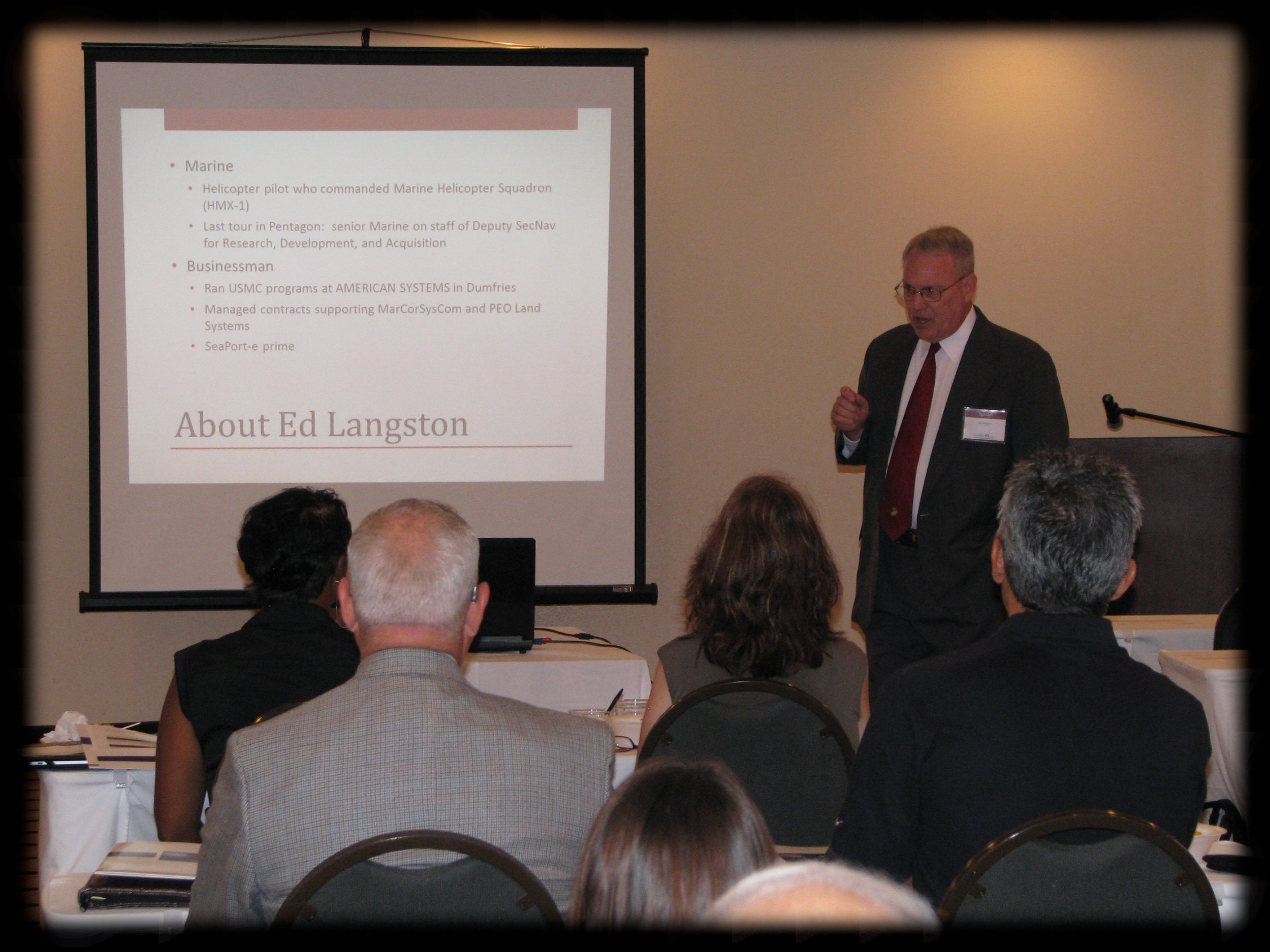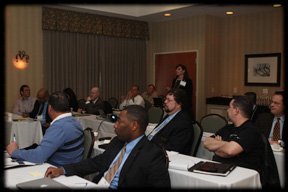MCSC SeaPort-e Industry Day Raises Questions
/ACSS Briefing to Industry Falls Short of Attendee Expectations
Marine Corps Systems Command (MCSC) has shelved its in-house CEOss acquisition vehicle for services in favor of the Navy-wide SeaPort-e contract. Attendees of the industry day held June 18th in Quantico may have come away with more questions than answers about the impact of the change, and USMC’s plans for the transition.
Nearly 20% of the attendees (by show of hands) were not SeaPort-e prime contract holders. The announcement came on April 27th, just days before the proposal deadline for SeaPort-e Rolling Admission for 2012, locking out those vendors without contracts until at least Spring 2013.
Acquisition Center for Support Services (ACSS) director, Mr. Paul Ortiz, briefed the 100+ attendees on some of the changes they could expect. Key changes touched on include:
- Task orders will be Firm-Fixed-Price
- MCSC will adopt the SeaPort-e functional-area structure in place of the CEOss domain model
- Solicitations will adhere to Navy guidance for formatting, and MCSC will utilize SeaPort-e templates
- Base contract awards will be made by NAVSEA using their process
- Task order award decisions will be made locally, by the ACSS staff
- “Due diligence” will be incorporated into the task order Q&A process within the 30-day open period for solicitations
- More emphasis will be placed on meeting small business participation goals
- Engineering waiver determinations must be conducted for task orders with any engineering element
Still, a great deal was left unanswered, and it is evident this is unfamiliar territory for the command. ACSS is unable to forecast specific new or follow-on work that will be competed under SeaPort-e, though they cite historically annual CEOss figures of 1,600 task order actions, with a value of $450M.
Most concerning is the information left out of last week’s 1.5-hour brief, though Mr. Ortiz did say the communication plan for the transition is an internal document. We can only hope more information is available to industry in the very near future.
There was no guidance provided for current prime and subcontractors that are not SeaPort-e participants; no mention of SeaPort-e‘s 51% work requirement for small business set-asides; and no discussion of the new prime contract awards expected next month.
Alarmingly, there was no nod to the impact on long-time CEOss primes who would be unable to re-compete for work they are currently performing, or the programs that will no longer have access to the expertise of these contractors. Perhaps MCSC does not view this as their problem.
SeaPort-e is an agile vehicle that can provide MCSC with efficient and powerful tools to meet their requirements. It is also a complex, peculiar and competitive contract. To make the most of it, both government and industry need to understand what it can and cannot do.
MCSC seems to be expecting a more robust suite of services than SeaPort-e delivers. For example, SeaPort-e can’t improve a poor requirements process, and there is plenty of anecdotal evidence that the marriage of Marine Corps’ requirements and acquisition process has not always gone smoothly.
Another stumbling point is the plan to have the question and answer process in the SeaPort-e portal serve as due diligence within a 30-day open period of a solicitation. This is a recipe for protests. A material amendment to an RFP must include an extension to give fair opportunities to competitors.
The industry day did little to instill confidence MCSC is making a deliberate, planned move to SeaPort-e with enthusiastic support of the ACSS. One thing is very clear: this is the future to which MCSC is marching smartly and ACSS is tapped to lead the charge.
For SeaPort-e primes who have been locked out of the USMC’s services business due to the insular nature of CEOss, this major change opens new competitive opportunities. With Navy-wide emphasis on affordability, even long-time incumbents may be unseated with the right win approach. Current CEOss primes and subs no longer have a captive market and will have to up their game to stay competitive.
From an industry perspective, my advice is to stay better-informed than your customer, and that means getting your advice from the experts.
Did you attend the Industry Day? What are your unanswered questions about the change? Leave us your thoughts in a comment.




